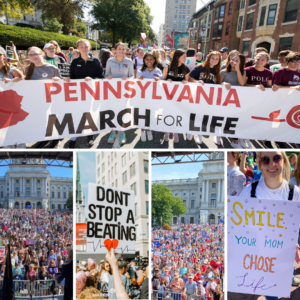The Third Circuit Court of Appeals, housed in Philadelphia, handed down two decisions in the past week that impact sidewalk counselors outside of abortion clinics in Harrisburg and Pittsburgh. In Bruni v. City of Pittsburgh and Reilly v. City of Harrisburg, the Court answered the question of whether sidewalk counselors can counsel women who are about to enter an abortion clinic.
The plaintiffs are sidewalk counselors, meaning that they have calm and quiet conversations with women outside of the clinics where they offer assistance and information to those who are seeking an abortion. The counselors’ goal is to persuade by using caring and personal conversations. In order to effectively communicate in this manner, these sidewalk counselors cannot speak in the form of protests. Rather, they need to be close so that they can speak in a quiet tone. After all, it would be difficult to communicate love to another by shouting it.
Both Harrisburg and Pittsburgh have what are called “buffer zone” laws in place that prevent a person from congregating, patrolling, picketing or demonstrating within a certain distance of an entrance or exit of a healthcare facility (Harrisburg is 20 feet and Pittsburgh is fifteen feet). Both cities argue that despite the plaintiffs’ need to communicate their speech in a loving tone, that these sidewalk counselors still cannot enter the buffer zones to speak to the women entering the clinics.
In both cases, the 3rd circuit court came to a reasonable conclusion. The judges stated that sidewalk counseling is not “congregating, patrolling, picketing, or demonstrating;” therefore, the local laws do not prevent citizens from entering the “buffer zones” to counsel women. The Court reasoned that “approaching someone individually to engage in one-on-one conversation” is not congregating, picketing, etc. As a result, the plaintiffs can counsel women near the entries and exits of abortion clinics.
Using a baseball analogy, these decisions are a triple rather than a home run, however. First, the court’s decisions leave holes in the protections given to sidewalk counselors. A city could easily add “counseling” to the list of prohibited activities within the buffer zone. Additionally, by not striking the laws themselves down, counselors, protestors, and other pro-life advocates still run the risk of selective enforcement. And, the laws may be better crafted so as to not relegate those who do protest to a distance of fifteen to twenty feet away. However, those arguments can be made in the future, and these decisions are worth celebrating.
By Curtis Schube, Legal Counsel





